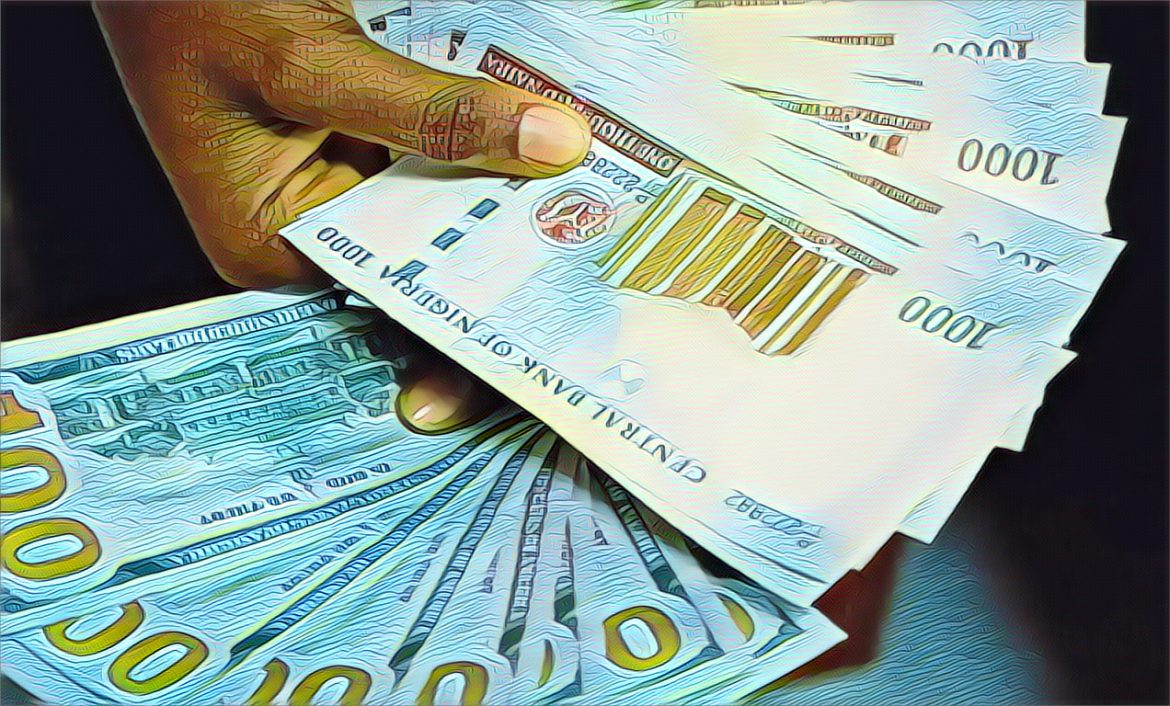In recent trading, the naira nosedived, hitting N1100 against the dollar on the informal market, a deterioration from N1,060/$1 previously. Those requiring wired transfers faced even steeper expenses, with rates reaching N1,130/$1. Official channels weren’t spared either, with the Investors and Exporters’ (I&E) window listing the naira at N883.56/$1, a stark decline from N775.44, data from the Central Bank of Nigeria (CBN) revealed.
According to a report by This Day Live, Experts blame this depreciation on a scarcity of U.S. dollars and heightened demand following the CBN’s lifting of restrictions on 43 import items. This policy shift intensifies pressure on the naira, creating a lucrative environment for arbitrage and potentially fostering imprudence among state officials enriched by the weak currency.
The market’s instability also manifested in a drastic turnover reduction to $69.88 million on the I&E window, down nearly 50% from the day before. This volatility, combined with a growing chasm between market rates, hints at underlying economic vulnerabilities.
Analysts fear the depreciating naira could spur fiscal irresponsibility, particularly among state governors flush with increased naira allocations. The concern is that such windfalls may foster extravagance rather than prudent investment in Nigeria’s economic future.
Compounding these market woes, the naira’s spot rates fluctuated between N986 and N701, reflecting the currency’s instability. CBN Governor, Olayemi Cardoso, admitted the absence of quick fixes for Nigeria’s complex economic hurdles but affirmed commitment to reforms enhancing investment, employment, and overall economic health.
The CBN’s strategy, as outlined by Cardoso, hinges on supporting expansive fiscal policies, targeting a $1 trillion GDP within eight years, taming inflation, bolstering foreign reserves, and enhancing economic resilience.
In a significant policy turnaround, the CBN reauthorized foreign exchange for importers of 43 previously restricted items, hoping to inject liquidity and stabilize the naira. Despite this, the bank emphasized its limited ability to single-handedly steer the economy single-handedly, underscoring the need for holistic, sustained reforms.
The CBN aims to recalibrate foreign exchange policies to ensure market-driven transactions, foster stability, and avert further economic turbulence. Amid these efforts, market participants’ adherence to professionalism and order remains crucial in stabilizing exchange rates and steering the economy toward sustainable growth.


